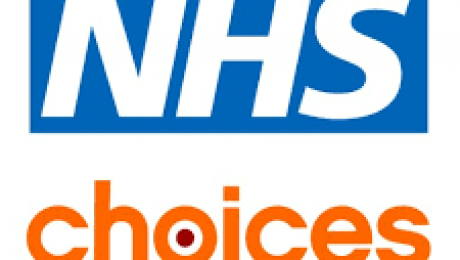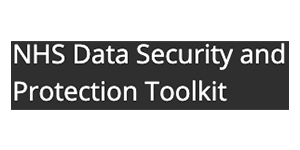One small Scottish practice changing the world
When there’s a chink of light in the dead of winter (and wall to wall NHS crisis on the BBC) we have something to celebrate.
I spoke with Dr Sue Arnott, who runs a practice of 4,600 patients in a traditional ex-mining community in central Scotland. She had tried for months and failed to recruit a GP, so is now running single handed, supported by an ANP and further part time nurses.
She explained how they are now up to about 60% of demand online, of which she responds by secure message to about 60%, largely without even a phone call. It means she has time for all the patients’ needs, in the appropriate mode, today, and is on top of demand, feeling in control.
How? There’s no coercion involved, just that the receptionists point the patients to the website, show them where to start and help as needed. If not possible, they’ll take the request by phone. And patients are very very happy.
When we were first in touch in the autumn I was more than a little concerned about the few GP sessions for the list size, and said they’d need to go all out for change. They have, they love it and they are providing a fabulous service. That’s my cause for celebration, because anyone can do it.
Philip Hammond is not going to bung any more money into the NHS. Even if he did, Jeremy Hunt is not going to magic 5,000 GPs out of thin air. (and I submit that it’s immoral to recruit them from nations where doctors are even scarcer).
Patient demand is not going to go away because we tell them to self-care more (we’ve been telling them for decades. They know).
So we have the demand that we have, and the GPs that we have. But by changing the system in every practice in the UK, which is up to every GP in the UK, we can manage.
Indeed we can thrive, like one practice in Lanarkshire.
Harry Longman
- Published in News
PRESS RELEASE: askmyGP overcomes NHS Choices search gremlins
PRESS RELEASE 3 January 2018:
askmyGP overcomes NHS Choices search gremlins with new free webapp
——————————————————-
Patients are being urged more than ever to self-care, in order to cut demand on NHS GPs in the winter season. While NHS Choices provides high quality advice, until now searching the site has been hit and miss.
askmyGP, the leading online consultation platform, announces today a free version which lets patients search NHS Choices with a unique smart search algorithm.
Founder Harry Longman explains the reasoning:
“We’ve always directed patients to seek self-care advice from NHS Choices. It covers virtually every medical condition, the information is clearly presented, evidence based, and free. It carries no advertising and never tries to sell to patients, whether medications or consultations, as other sites do.”
But the weak area has been search. Put “Back of knee hurting” into NHS Choices and you’ll see “La Bomba dance workout video” – not exactly what you were hoping for.
The same phrase entered into askmyGP takes you straight to knee pain and its potential causes.
Many similar examples are exactly as entered by real patients. “3yr old holds his breath”, NHS Choices: Your guide to an echocardiogram. Or Dentures. Perhaps not.
“Had coff for over 5 weeks”, gets you Norman’s Hip Op video.
Try all these in the askmyGP demo site and compare with NHS Choices itself, even though all our content is provided by NHS Choices. What patients want is a smart but sympathetic search which won’t quibble over how they spell diarrhoea (we’ve found the right page with hundreds of spellings in askmyGP, from diria to dhearrorrea).
We don’t believe NHS Choices content should be reformatted and sold back to the NHS for private profit, as some suppliers have done. What we sell is the askmyGP online consultation system, helping more GPs and patients every week (over 25,000 episodes managed so far).
We’re giving away the very best we can offer to help patients self-care. The askmyGP search webapp is available from January 2018 to all NHS practices and organisations, no strings attached, it’s free, for everyone and for anything.
ENDS
Note to editors: askmyGP is provided by GP Access Ltd, founded in 2011 with the vision “To transform access to medical care.” We are serving NHS GP practices, CCGs and Health Boards in all four countries of the UK.
Further information:
askmygp.uk Search demonstration at Bramley Demo Surgery bramley.gpsurgery.net
Chief Executive Harry Longman, 01509 816293, mobile 07939 148618
- Published in News
Sometimes the sun comes out
I guess that like me a lot of your time is spent grinding through one (damn) thing after another. In the short days and long nights it can seem like more grind than ever.
So when plans struggled over for years suddenly work it’s a very special day. It feels like the sun coming out on the brilliant white of fresh snow.
Dr AV, a single hander GP in Scotland with 2,900 patients emails me: “Best Friday I have had in 2 years!?”
The reason? He’s in control, he’s reached 50% of demand online, the rest by phone, and he and the team are dealing with everything as it comes in. In the middle of December he writes “We have free slots – many in fact – on any given day !?”
Sorry I don’t even know how to write emojis but I think that means a cheesy grin.
Actually, he’s not the only one, Dr SA has done the same, and she has even more patients. I’m using initials because they don’t necessarily want you all to ring them up at once.
What was it that suddenly made the difference? Last week I promised to tell you if it continued. Well it’s so ridiculously simple that I’m almost embarrassed to say.
We’ve had this idea on one of our powerpoint slides for months, but never really pushed it because no one had tried it so we didn’t know it would work.
The receptionists guide the patient to the practice website and get them to try askmyGP. They are even more effective than the GP giving a telephone message. They love it – they feel empowered too, and when the requests come in they are better equipped to deal with them – many are answered by secure email.
The GPs love it because every single one is saving minutes, and when you’ve 3,000 patients to manage, and preparing for Christmas too, that counts for a lot.
One terribly important point I must make: there is no forcing patients online. You may hear of other case studies where the telephone option has effectiively been removed.. We refuse to condone such an approach – in fact, telephone service improves.
Look, the vast majority of things that we try, fail. You don’t hear about them, and we try a lot, and some of the failures are painfully costly. So when something works, we might as well ? about it.
Anyway, you can see what the receptionists and GPs are directing patients to do on Bramley Demo Surgery.
Very best,
Harry Longman
askmyGP & GP Access Ltd
Comment on the blog
PS You might even say the struggle goes back to 1981 when the electronics lecturer is trying to explain to thicko engineering undergraduate why asynchronous communication is so much more efficient. He wins.
- Published in Comment
What we do with patient feedback
Do you find yourself getting asked for feedback the whole damn time? Ever wonder what happens to it? I admit to being the bloke who stood in the customs area at Luton Airport for 10 minutes, hitting the Friends and Family sad face just for devilment, but please don’t do as I do…
I want to give you some insight as to how we use patient feedback because it’s a big part of our development process and we have some rather good news to report.
The first thing is to get lots of feedback, make it very easy and quick to collect, without being intrusive. So we give every patient the chance after they’ve sent their askmyGP request online. They get two tick box questions and one free text.
The response has been huge, over 2,200 from nearly 20,000 patient episodes, a rate over 11% of users and it shows how much they care about their experience.
We read every one and mark it positive, negative, suggestion or other. Other is mostly don’t know yet, or issues with the practice rather than the software. We get lots of suggestions which is useful. Overwhelmingly the sentiment is positive, the strong themes being speed and ease of use.
The positives are uplifting but in a way they don’t help as they don’t tell you what to do. We’ve been running at about 10% negatives, they can hurt, and sometimes they don’t pull punches
“I absolutely hate this system. Too impersonal, takes too much time.”
So we’ve taken a hard look at the themes and made a number of changes, some quite subtle, over the last few weeks. Two weeks ago negatives fell to 7%, and last week to 4%. It’s wonderful to see. Positives don’t go up, but suggestions do as patients feel they have something to contribute.
Yeah, OK, I’ll end on a positive note, this from a lady last week:
“Amazing service! It has improved my experience considerably. No more calling for 30 mins at 8am and a fast response from the doctors.”
It’s a team effort. Biggest part of the experience overall is the speed of response from the practice and the care from GPs.
Last weekend I was in London and faced all over the Tube with Babylon’s “GP at hand” adverts. If you’re worried about them bagging 150.000 patients, don’t be.
You can do better. Easy.
Harry Longman
- Published in Comment
We need happier GPs
How is your Monday going? If you’re a GP, I already know the answer, it’s busy, because 28% of the week’s demand arrives on Monday, and 3/4 of that in the morning. It’s not news.
News last week was that GP numbers have fallen by 1,300 over the last two years. A bit of a problem when at the half way point to Jeremy Hunt’s election pledge of 5,000 more GPs, we’d have expected growth of 2,500.
We need happier GPs.
The Dutch have happier GPs. Listen to Jako Burgers tell the RCGP conference why (20 minutes or so). Students compete for their GP training places, they recognise it as a top choice.
There are differences in funding and so on, but a lot about the system is similar to ours and they are paid about the same. Practices are smaller, there’s no obsession with scale, and they love the independence.
Let me float this idea for the UK: GP opening hours are too long. For many years now more women have been joining GP, but 8am is too early to be family friendly, and a 6.30 finish is too late. While we’re there, why shouldn’t fathers be at breakfast with their school age kids? Of course they should.
6.30 finish? “You’d be lucky” I hear partners say. Yes, many GPs are working very long days, I’ve heard 12 – 14 hours. Then taking days off. Working with hundreds of practices we almost never come across a full time GP.
I’m not proposing to cut GP working hours, though we should cut pointless overwork. But to spread them out evenly. Operationally it’s much better to work a regular five days, reasonable, family friendly hours, offering better continuity to patients.
I’m not proposing to cut access to GPs, but improve it (clue’s in the name). The difference in pushing back opening from 8 to 9 is an hour – compare with the three week wait forced on many patients. (by the way, the Austrian health department is trying to get GPs to open in the afternoon). Extending hours to 8pm and opening weekends for routines is catastrophic – sucking GP capacity into low demand periods, destroying continuity and burning money.
Understanding demand and flow means help for patients within the hour is not just normal, it’s easy. Minor problems we have with the Transform programme are firstly, we know that GPs starting work at the same time as reception is crucial for daily flow, and 8 is too early for many. Secondly, part time working causes uneven capacity through the week.
While our policy makers focus on inputs, number of GPs, number of hours, we need to look the other way. How do we make GP more professionally rewarding and practically possible?
Jako Burgers: “Happy GPs will do a better job than unhappy GPs.”
It’s not rocket science is it?
Harry Longman
- Published in Comment
GP at hand. General practice in very big trouble.
You cannot have failed to notice Babylon’s GP at hand service all over the media this week. As a PR exercise, on the Today programme, You and Yours, TV, front page of the Times and an almost unheard of positive story in the Daily Wail, it was SIMPLY BRILLIANT.
What you may not have appreciated is the existential threat this makes to regular NHS GPs. While presenting it as “the NHS has suggested that the service may however be less appropriate for…” the list of exclusions is in fact the engine of profit for Babylon. Read the list. It’s 90% of a normal GP workload. It begins with women (twice the consult rate of men in middle years), who are or may be pregnant (more work. And babies – lots of work). All the usual suspects, the elderly, sick, frail, confused and multi-morbid are there. They are work. Babylon doesn’t want them.
Babylon has got something spot on: patients are fed up with the often abysmal service from their current GP.
They want the young, fit and healthy, especially men, who rarely need a GP but when they do, want help fast, and don’t want to bother with going to a surgery unless they have to.
All these patients carry the same capitation. Think: what if you lost half your income and the easy half of your population? But kept 90% of the work? If it isn’t obvious yet, GPs will go under. That may not be you, but your neighbouring practice, whose list will be dispersed… to you… and you know those dispersed will be high demand. Nice.
They are in London so far, but Babylon’s ambition is limitless and I fear a multiplier effect from the mechanism above. They have the law (practice boundaries abolished), the funding model, the technology, the demographics and clearly the PR on their side. No doubt BMA is dreaming up legal challenges as I write, but they are no match for weasel words backed by £60m of VC money, while changing the law takes years, at best.
If it were simply about better GP services, I would be cheering. But the inevitable consequence is to stoke the Inverse Care Law. Those who most need help will find it most difficult to obtain. General practice will be dramatically less profitable in the hardest areas, and will suffer even in the most privileged. This undermines nothing less than the core principles of the NHS, universal, accessible and free at the point of use.
I will end on a note of hope, because this is not hopeless if we act fast. I founded GP Access & askmyGP with the vision “to transform access to medical care” and some might say Babylon have achieved that.
But our vision is universal. We have no exclusions. We understand the quality and safety from relationship continuity, to say nothing of the professional joy in work.
Although Babylon’s offer is getting the PR, it’s actually not that great. 2 hours for a video? So slow. 48 hours to be seen? So long. Travel within zones 1 – 3? So far to go.
You can beat it. Faster, easier, closer, with the GP you know.
As @stevekellGP tweeted yesterday, “All patients contacting the surgery today for GP help have spoken to GP & been seen if needed. No DNAs, clean start tomorrow. No videos needed” – most of them spoken to within half an hour.
If you haven’t seen his 2 minute interview you really must.
Our vision is of a transformed general practice that you own and you run for the care of all your patients. It is not a transformation done over you by the power of money.
I’ve been saying this for six years. Now wake up GPs, before it’s too late.
Harry Longman
- Published in Comment
Revealed: askmyGP shares NASA Mars mission technology
“We’ll get the information a lot sooner and for a lot less money by just sending a person.” I was dumbfounded. Dr Ellen Stofan, outgoing Chief Scientist of NASA, was talking to Jim Al-Khalili on the Life Scientific about no less a task than finding life on Mars.
It’s a fascinating interview from the start, or jump to the quote at 19 minutes in. So that’s why they want to send a person, not for the ultimate ego trip, but the simple purpose of finding life. Jim pushes her on the reason, doubtless at a cost which is telephone numbers cubed, and it’s simple: humans are creative, flexible and mobile.
All they have to do is break open rocks and look for fossilised microbes. With NASA’s vast resources and access to the world’s best brains, their secret weapon isn’t AI and robotics, but human intelligence.
I’m an engineer and a technophile. I read Wired online and I have three bicycles, one of them all carbon. But I’m ever so wary of the claims made for AI chatbots revolutionising healthcare any minute now.
At Best Practice show last week half a dozen companies were offering some clever algorithm to make your patients go away. They are so seductive, even plausible. But when I ask, “How many patients have actually used them?” I get stonewalled.
Substantial wedges of venture capital say “It must work”. Rather different from asking, “What works?”
What humans are good at:
- searching huge databases in milliseconds
- communicating instantly and securely
- organising and analysing information
What computers are good at:
- solving tricky problems through experience
- building relationships of trust
- caring for people in need
Our philosophy with askmyGP is very clear: we get the computers to do the boring easy bits they do so well, so the humans can get on with the real hard work of looking after patients.
We’re proud to call it HI and we’re on the same track as NASA.
Harry Longman
PS Did I get that the wrong way round? Doh! Must get a new proof reader.
- Published in Comment
Tele-First study reported in BMJ
With the publication in this week’s BMJ of the Tele-First study into the telephone first model of general practice, you would expect me to read carefully and respond. So here are the headlines:
- 65% of patients report being phoned by a GP in less than one hour.
- 56% of patients find it more convenient vs 22% less convenient
- Large improvement in length of time to be seen, 20% move in GPPES survey.
At a time when we are told repeatedly that patients are having to wait ever longer to see a GP, often measured in weeks, these are quite astonishing figures, all quoted direct from the report. But, dear reader, these are not the headlines you have seen in Pulse or the BMJ Editorial are they? Studies, and the interpretation of studies, are political. We have an interest, and so does everyone else.
Therefore the first thing I want you to do is read the full text so you can make your own mind up independent of headline writers. It is much more detailed than the print version, framed by an angry looking GP model and a scared looking patient model, giving more space to a commentary piece than the actual study.
There is much to absorb but for brevity I’ll comment on the summary section.
What is already known on this topic
- GPs are struggling with the current demands on general practice and looking for effective ways to manage patient demand
- Claims have been made, reproduced in NHS England literature, that a telephone first approach, in which all patients wanting to see a GP are asked to speak to a GP on the phone first, results in major cost savings for primary care and reductions in secondary care costs
We do not make those claims, they were made on the home page of PPC Doctor First, a 20% drop in A&E and £30,000 saving per GP per annum. I’m grateful to the authors for proving these false. *
What this study adds
- In general practice, many problems can be dealt with by a GP on the phone
- The new telephone first approach resulted in more phone calls, fewer face to face consultations, and, on average, more time spent consulting
- There was wide variation between individual practices, including large increases and large decreases in workload after adoption of the telephone first approach
- There was no evidence that the telephone first approach would reduce costs of secondary care
In a way it is disappointing to see no secondary care effect, but not unexpected and unless the evidence changes, that is what we accept.
But what has really got GPs aerated is this finding of “more time spent consulting”. This was derived from data sent by us to the study, which we have not used to make a calculation on workload for several reasons: much of it is missing (and as the authors state, had to be imputed), it shows wide variation, and it cannot account for total workload. Let’s consider:
Workload = demand/efficiency + non-clinical work + waste
We do not have a reliable way to measure the total, and given that the study used only one of our three datasets, I don’t see how they can make this assessment. Just one example: many practices have told us of the drop in home visits, each one saving the time for many surgery consultations. This is not measured. It may be a good thing to have more recorded time consulting, if less time is wasted. Not only does this finding seem to me unsafe, it also brings us back to the question of purpose, for the study and indeed for the NHS.
If the purpose is to minimise GP workload, we can do so very simply: design the working day so you see 4 or 5 patients in the morning, take a good lunch and a nap, then spend a little time in personal reflection and development before heading home., purpose achieved.
I’ve worked with a lot of very hard working GPs and they would not be satisfied with that purpose. No, the purpose of general practice and therefore the purpose of change must be to improve patient care.
There’s a missing term in the workload formula, and that is “unmet need”. Behind those words lies untold suffering and frustration of patients, heard perhaps by a receptionist (one wrote last week, “I dread having to tell the patients there’s nothing left”) while others do not even get through on the phone. This is the dirty secret of general practice, and over many years we’ve measured it in practices we’ve helped, variable around an average of 14%.
One in seven patients is told to go away. Although we offered this data to the study team, they didn’t want it and took no account of it.
Their figures cannot distinguish between the workload of one GP helping 30 patients in a day, who had all waited two weeks, and another helping 40 patients in a day, on the same day they called. It could be life changing for those 10 patients, indeed all 40 of them for not having to suffer two weeks of disease, pain, or anxiety.
Both GPs may have equal skill and compassion, but the difference comes from efficiency.
By framing the question on workload rather than efficiency, the study misses a huge opportunity. It offers no help on how to become more efficient, and while it found wide variation in performance, the data were munged into averages rather than investigating in detail why the best ones worked better.
I’ll tell you a secret: we’re in this for the patients. To help the patients we have to help the GPs be more efficient. There is never a final answer to the method, there is only “the best we know for now, while we look for the still better way”.
We’ve helped around a million patients so far, with another 50,000 to be added in the next month. and as telephone triage (done well) is more efficient than pre-booked face to face, digital triage is already proving to be the next step. Sometimes we fail, but we press on.
Every day over 100,000 patients are told by practice receptionists “Nothing left, call another day”. Not on any basis of clinical need, just because the GPs have no slots.
It’s my personal mission to eliminate that phrase. What’s yours?
Regards,
Harry Longman
* The 20% A&E effect came from my 2011 study, based on pioneer practices with up to 10 years running the model, and promising at the time. The figure was copied by Dr First but never attributed. We could not show that the effect was reproducible, and therefore stopped making any specific claim about A&E 3 years ago. £30,000 saving? We make no such claims, although if GPs tell us about savings we are happy to report them. Why did NHS England swallow this?
@harrylongman
- Published in News








